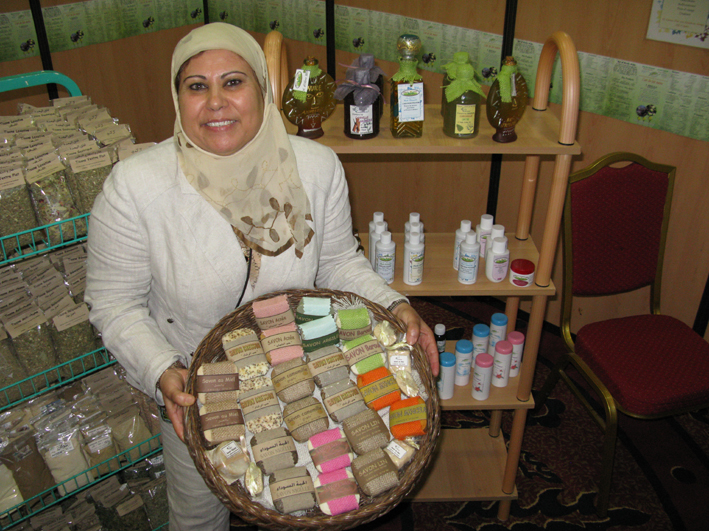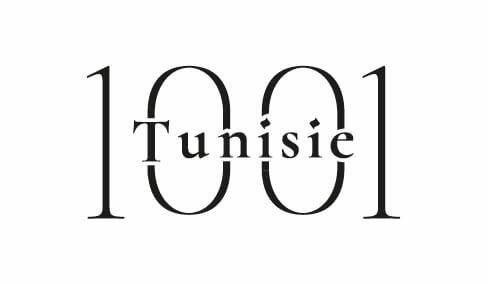
How did it happen to be interested in medicinal plants of Tunisia?
I am always interested . Probably by family tradition. When I was little, in Sfax, my family was always careful in using local medicinal plants. We were close to nature and its benefits as most Tunisians before the 1960s then I studied nursing and worked as a chief supervisor in a psychiatric hospital . I then saw the devastation that chemical medicine could do for people.
Then I fell seriously ill, a chronic disease that forced me to take for life a strong medication. This treatment had serious consequences on my body when, at the same time of my scientific readings and my knowledge as a nurse, I started to substitute treatment by another based on medicinal plants. I gradually felt better.
Why Herbioart?
We created Herbioart with my husband who is an occupational therapist and energy company there about 13 years because many people around us have solicited us for herbal preparations. So why not create our company of herbal and wellness products from plants. I was known for elixirs, potions and therapeutic liqueurs that I prepared.
Currently Herbioart is a family business that employs 9 people. I work with my husband, my son and my doctor’s stepdaughter pharmacist.
How did you acquire the amazing botanical culture you have?
As I said, in part through family tradition but also reading a lot of scientific literature on the subject. I bought and brought books of all countries: Egypt, Saudi Arabia, France, Germany … I have a huge library on the subject of medicinal plants and their virtues. My training and experience of over 35 years as a nurse of course gave me a practical approach to the issue of the disease and its symptoms.
I made over 300 papers and participated in numerous conferences and lectures on the subject at the side of international experts, doctors, pharmacists, botanists …
How about this natural heritage in Tunisia and abroad?
For knowledge of this heritage, there are associations that have initiatives to communicate and promote this heritage. I think of the Tunisian Association of medicinal plants or to the National Institute of Tunisian agriculture. However it is still very theoretical, it lacks concrete projects …
From my side since 2007, I have participated in TV shows to popularize the plants and show concrete recipes of beauty products made from them. Now I stand 15 minutes in the program “Elik” Mona Zouib on the channel Watania 1 (on Sunday at 19h-replay on Tuesday at 14h).
If you had one wish for your industry and the Tunisian plant heritage?
It would already mean that in Tunisia The agriculture and the farming profession to be considered and to be valued. Our country needs all trades. But in the years after independence, Habib Bourguiba has given so much value to education and higher education that at present everyone wants to become a doctor, an architect, engineer or teacher at the expense of other professions. This resulted in overcrowded industries and unemployment record in those. By cons, we lack, for example, qualified farmers. Hence the unconsciousness of the earth, nature and its benefits. The Ministry of Agriculture must also supports the small artisans and producers of essential oils and floral waters by allowing them to have access to non-timber products from our forests. Each year an auction is held at the Ministry of Agriculture to give momentarily, for exploitation, plots of state forests. It is always the big industrialists who round up the ante for the final exploit a tiny part of these forests (rosemary, myrtle).
What do you think are the emblematic plants of Tunisia?
There are many but I think especially rosemary, the thistle, the geranium rose , the orange blossom, the Nesri but also nettle, watercress, dandelion, lavender, borage, myrtle, mastic pistachio, globular, etc. These plants have incredible virtues (anti-oxidant, detoxifying, ovulation stimulation, anti enuresis, antifungal …) and people with rare exception, pick them up or are concerned with them. Tunisia is the first world exporter of rosemary essential oil. If we knew how to exploit and develop all the plants like rosemary, the country would have such significant cash inflows with olive oil. But beware, the export should not be the heart of this approach. This is certainly to export but especially to develop the local market. For example, Herbioart (http://www.mille-et-une-tunisie.com/shopping/artisanat-a-tradition/3824-herbioart-les-bienfaits-de-la-nature-en-pot-tunis. html) we have loyal customers for 10 or 15 years and buy our products are now sensitive to our plant heritage and its preservation. They talk to their friends and so our approach we are known by word of mouth.
Interview by AM
Herbioart
Faouzia Boulila-Ellouz
Menzah 6 – rue Saad b. Abi Wakas – UV4 Bloc 21 n°5 – Tunis
Site : www.herbioart.com – E-mail: bienetretraditionnel@yahoo.fr
Tél.: (+216) 22 710 766 / 71 230 219
{mainvote}

 َAbonnez-vous
َAbonnez-vous

